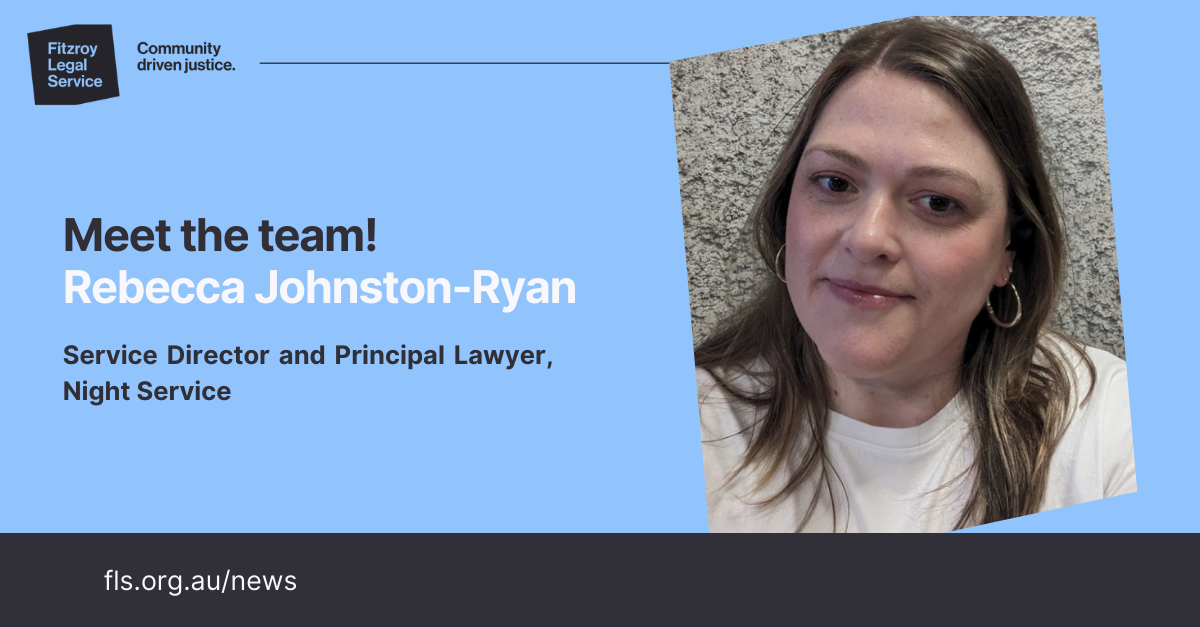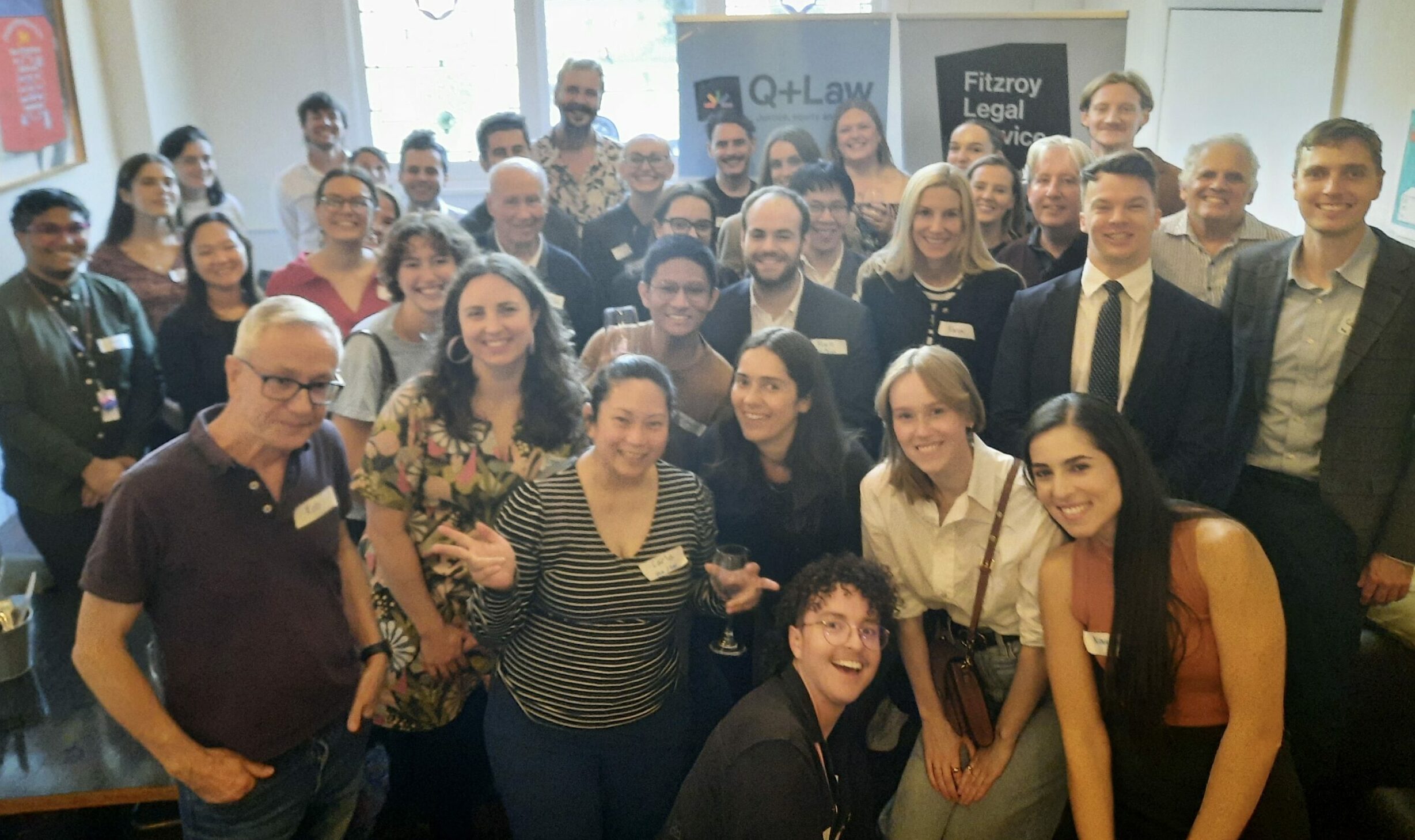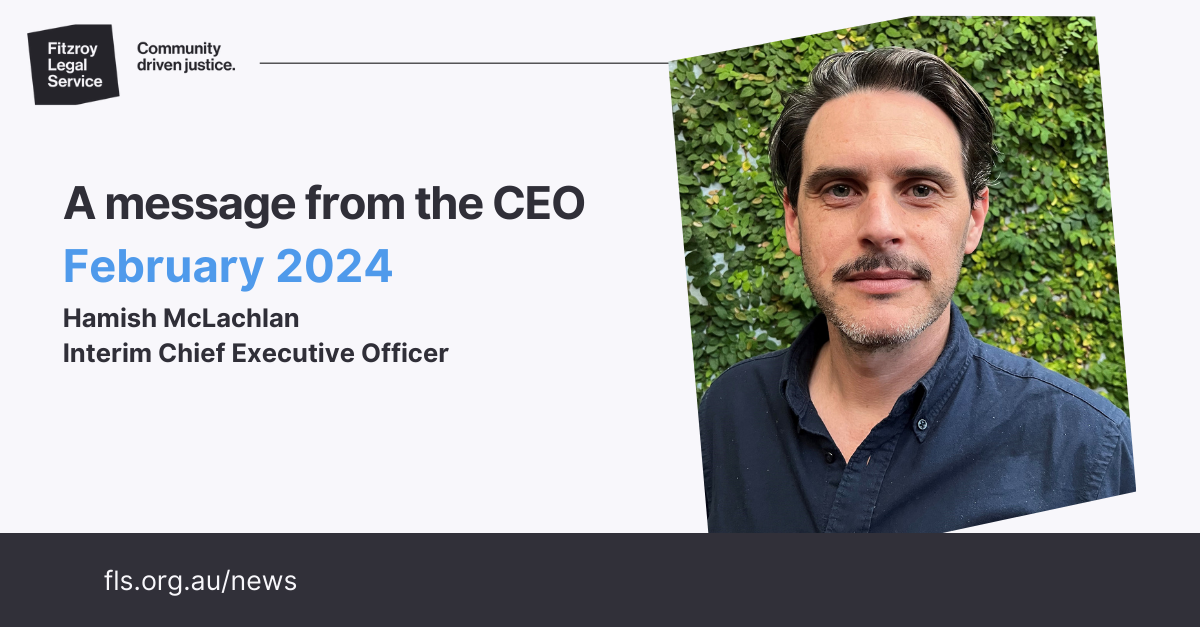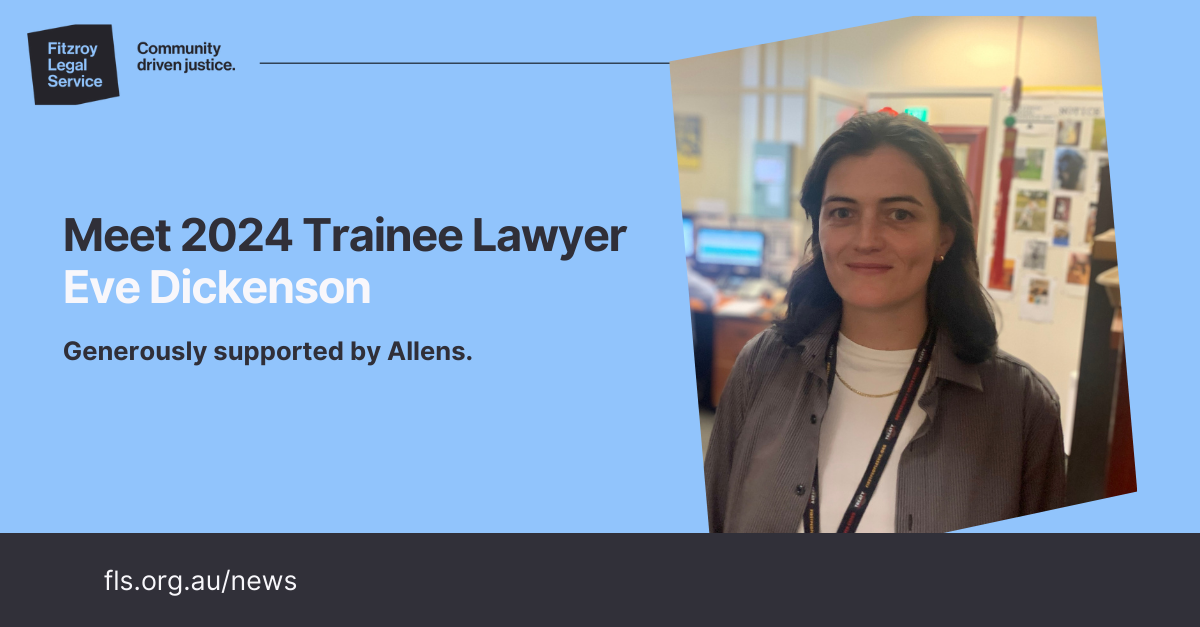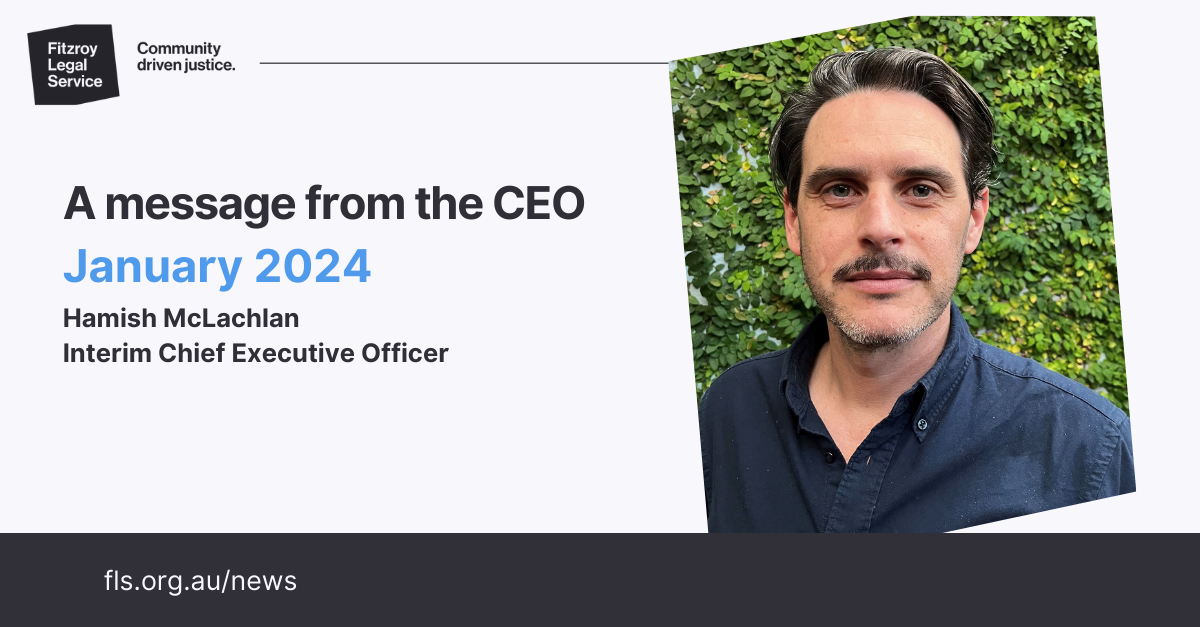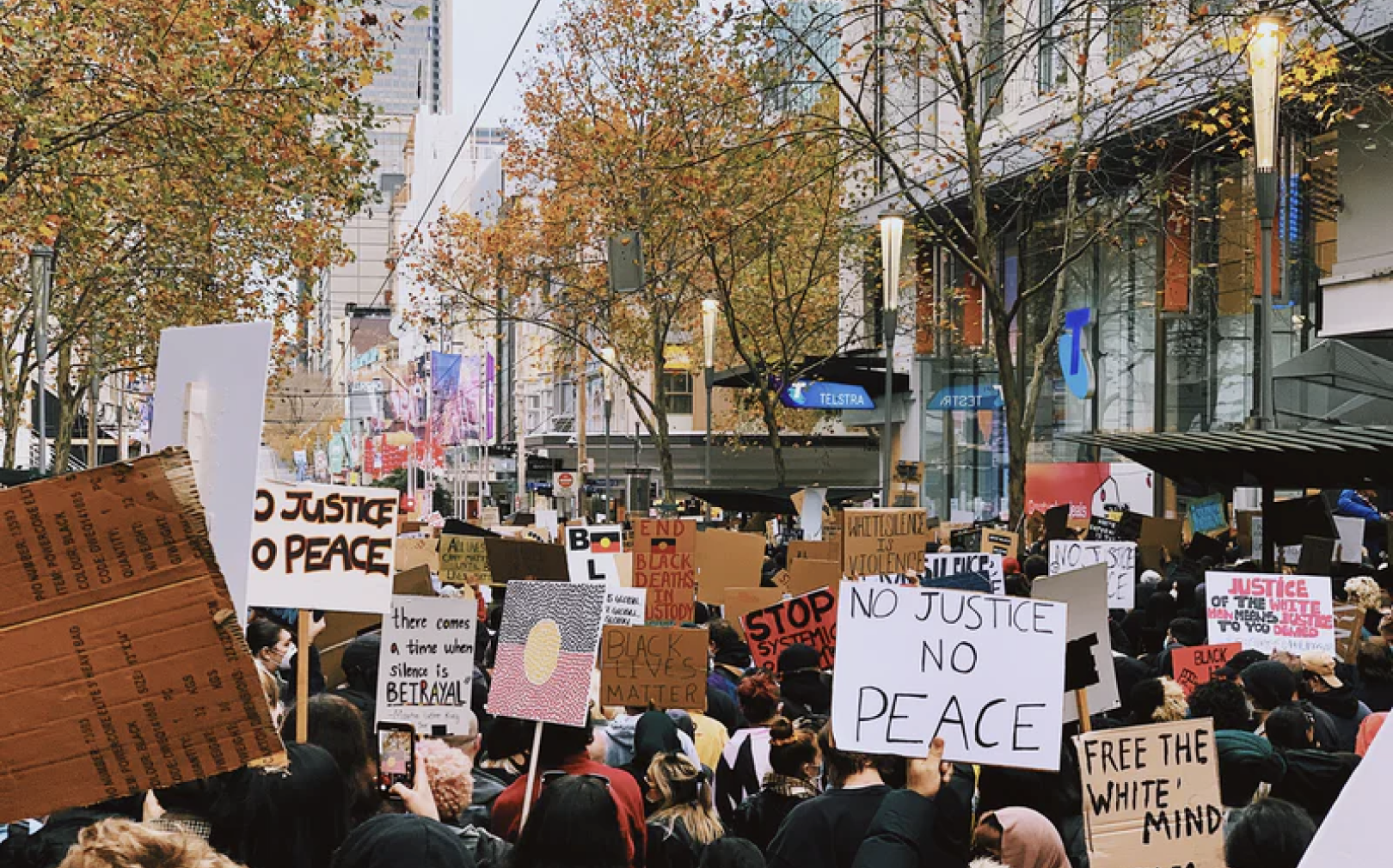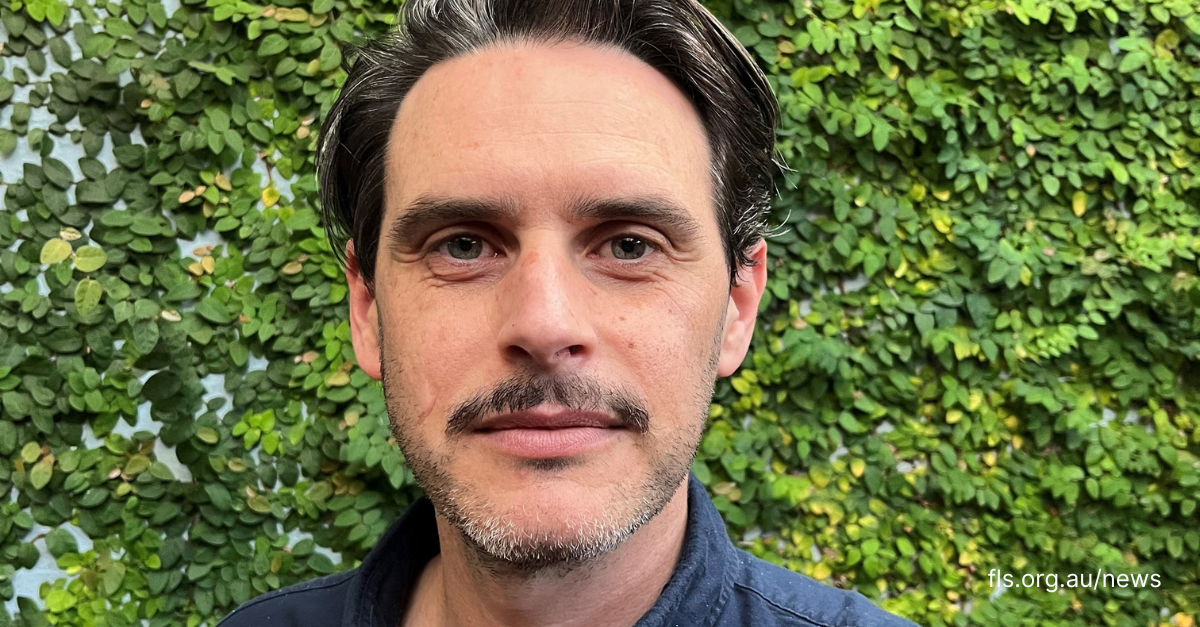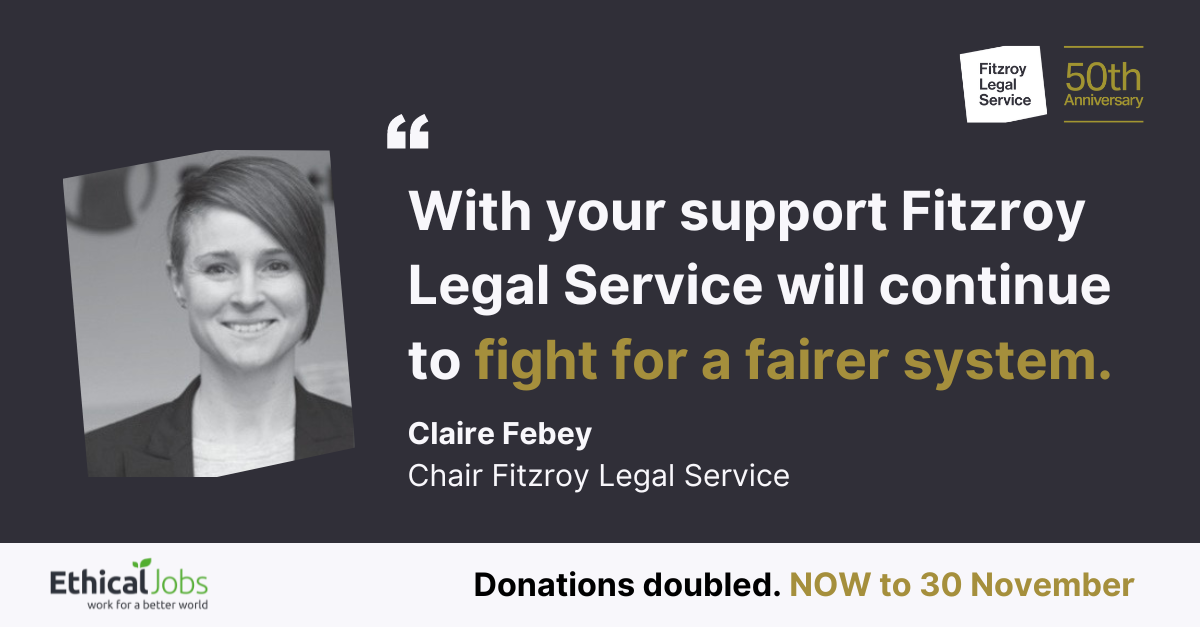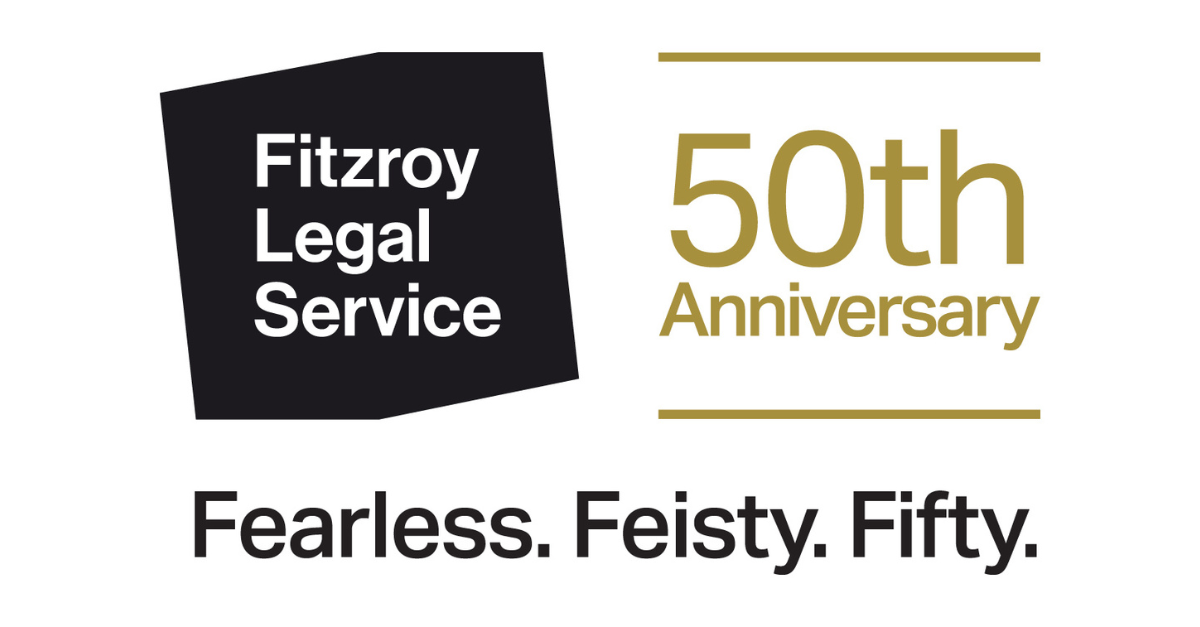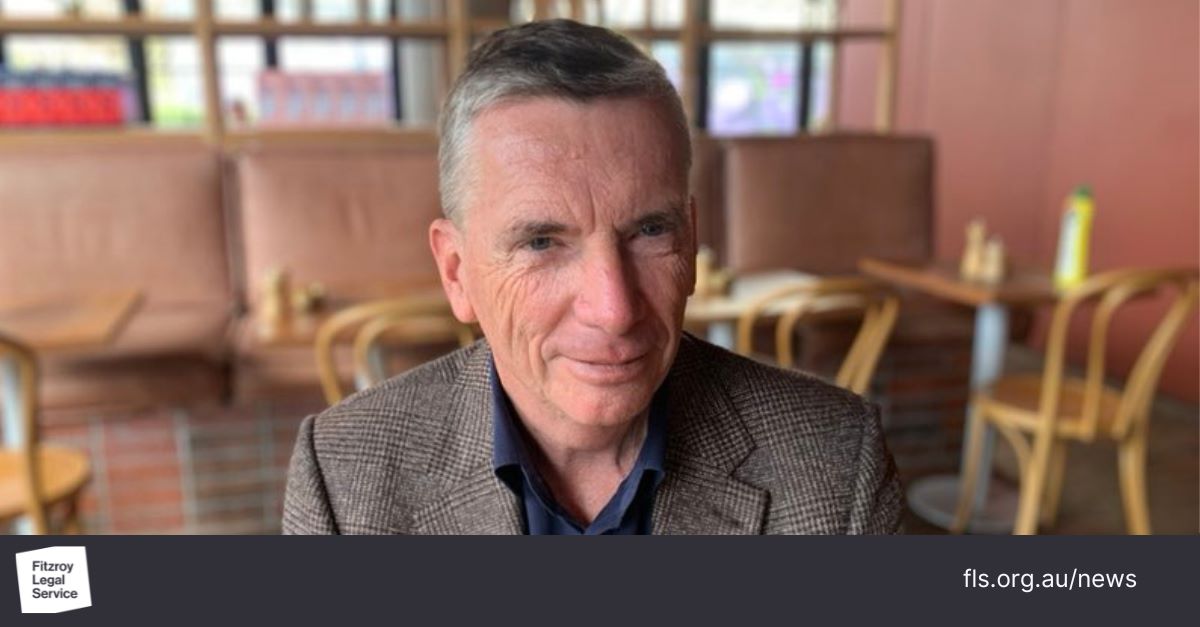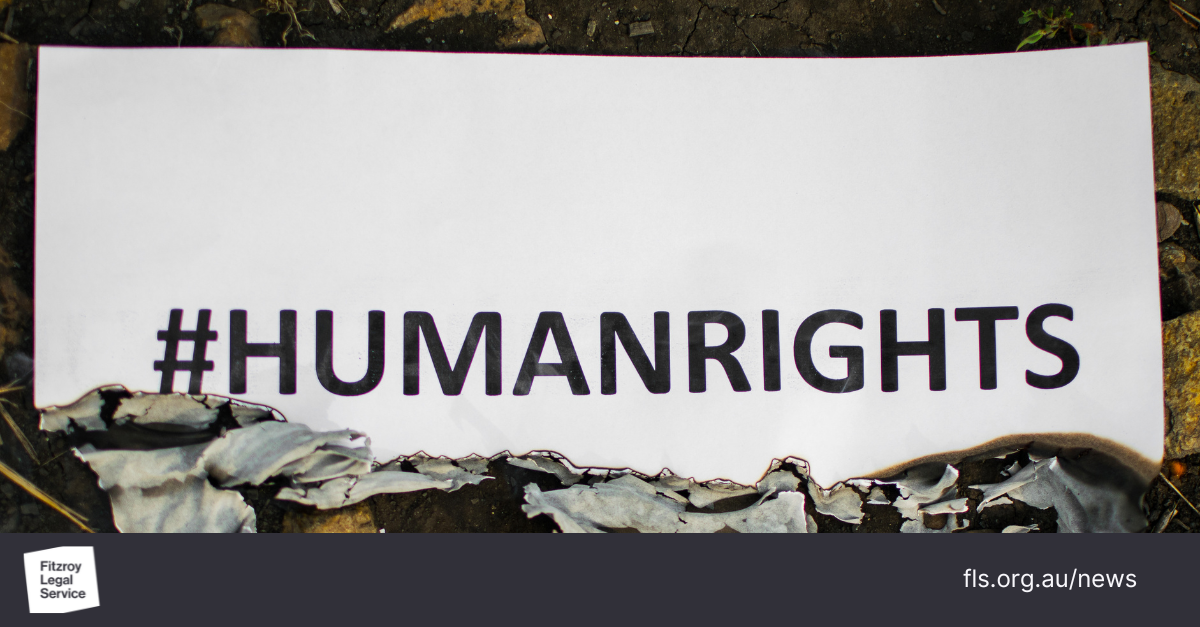30 April 2024
[Content warning: gendered violence]
It has been a horrifying month for our communities, following the recent spate of alleged murders of women by men in Victoria and elsewhere in Australia. At times such as these, gendered violence rightly occupies a prominent place in the public conversation. However, with family violence legal services being a core component of FLS’s work, we know that the issue persists long after the public clamour dies down. Prior to this year, a woman was killed every week on average in this country. In 2024 that awful statistic has increased to a murder every four days. Tragically we know that women will continue to be killed by men after the media and wider public has inevitably lost interest in the issue.
We urgently need to find a way to maintain the nation’s focus on what is undoubtedly one of Australia’s most appalling human rights issues, and what should be a source of great national shame.
Similarly, too often a commendable desire to honour the lived experience of women and ensure they have agency about an issue that overwhelmingly affects them, leads to men completely vacating the space and shirking our responsibility to fix this problem that is of our making. This is not a problem that should be owned by women – everyone needs to work on solving it, particularly those in privileged positions.
FLS sees first-hand the desperate need for both deep cultural change and a massive increase in gendered violence-specific services. The hard truth is that we will not eradicate gendered violence until we have dismantled the patriarchal structures that foster it. To get serious about gendered violence men need to get serious about all forms of gender inequality: income inequality, housing inequality, parenting inequality, reproductive inequality. Men also need to tackle men’s misogynistic attitudes towards women and gendered violence, which both underpin and sustain these inequalities. The reality is this needs to be done at an early age. And, yes, we need to tackle the big corporations that profit from goods and services that perpetuate these attitudes and magnify incidents of violence.
The response to instances of gendered violence too often relies on formal legal mechanisms, which focus on separating parties and making legal orders, while failing to provide appropriate agency to victim survivors and failing to address the underlying causes of the perpetrator’s behaviour. This response often leads to cycles of breaches of orders, incarceration and ongoing violence. Victim survivors need to be able to access family violence services that are accessible, holistic, non-judgemental, culturally safe and trauma-informed and which honour the fact that victim survivors are best served to make decisions about their own safety. Currently these services are scarce or non-existent.
The solutions to this crisis are not easy, but they are known. We – all of us – need to get on with implementing and, importantly, funding them.
In this edition of our e-news you can read about one of FLS’s services that focuses on assisting victim survivors, our in-demand Divorce Clinic.You can also meet our new Manager, Policy Advocacy and Projects, who is responsible for driving our vital systemic advocacy work on gendered violence and other issues. We also celebrate the work of self-advocacy group Voices for Change and highlight upcoming workshops being offered by Q+Law and a job expo being run by our direct employment project for women facing barriers to entering the workforce, Work Without Barriers.
Hamish McLachlan
Interim Chief Executive Officer















